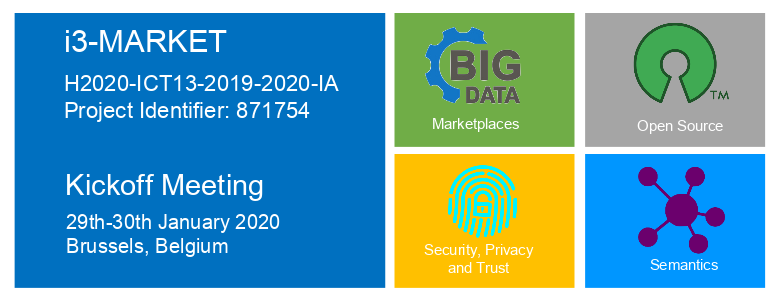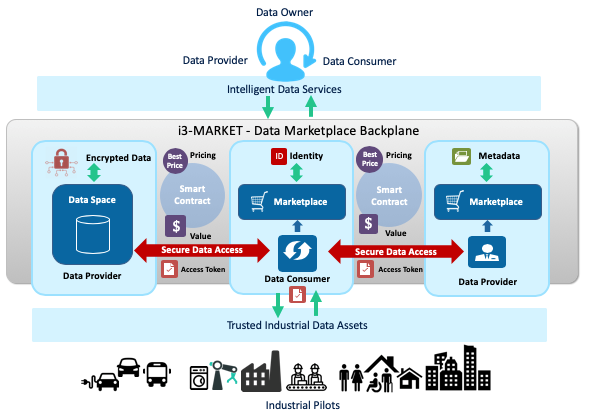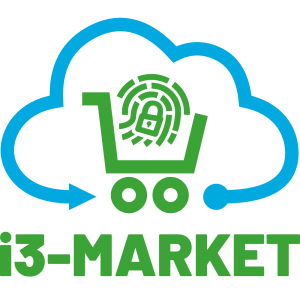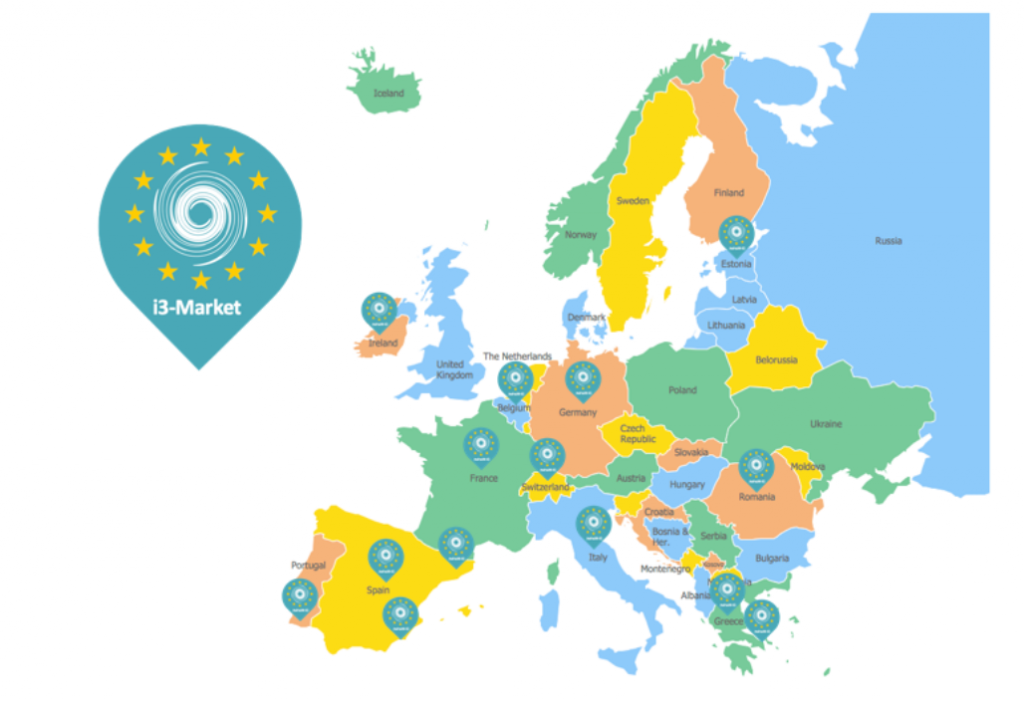The Smart Region project is the roadmap for the region’s smart territories.
Smart Region project
This initiative of the Region of Murcia will make available to all municipalities in the region (45 in total) the possibility of evolving towards a Smart City with developments and solutions of the last generation. This project seeks to use the new technologies (ICTs) for public administrations & citizens to facilitate the understanding and management of the city, and to evolve towards the objectives of the European Green Pact, which seeks to transform Europe into a global reference against climate change.
The first step of this project is based on a platform at the regional level of Smart City in which 2 million euros will be dedicated between 2020 and 2021. This platform will act as the basis for the Smart Region and will be global, allowing this process to be carried out in all territories regardless of their size. In this way, the management team of the region pretends to create Smart City opportunities equally throughout the region.
Smart Region will create to create Disruptive Technology Demonstration Centers to show projects related to Artificial Intelligence, the Internet of Things and Big Data to place the Region at the forefront of the digital transformation.
Javier Celdrán, president of the Regional Ministry of Presidency and Finance, highlights the priority to collect information from our cities. This action will be included within this Smart Region project allowing municipalities to access other new funding such as the Innovation Fund, from the European Green Pact. These funds, aimed at combating climate change, require an initial environmental diagnosis of the territory and compliance with the KPIs proposed through the subsidised initiatives to receive 100% of the requested funds. Therefore, Smart Region also seeks to provide its municipalities with the necessary infrastructure to be able to know the state of the territory, to be able to define some concrete actions to be carried out, based on data and to be able to evaluate the impact of these actions through IoT infrastructures and thanks to the Big Data.
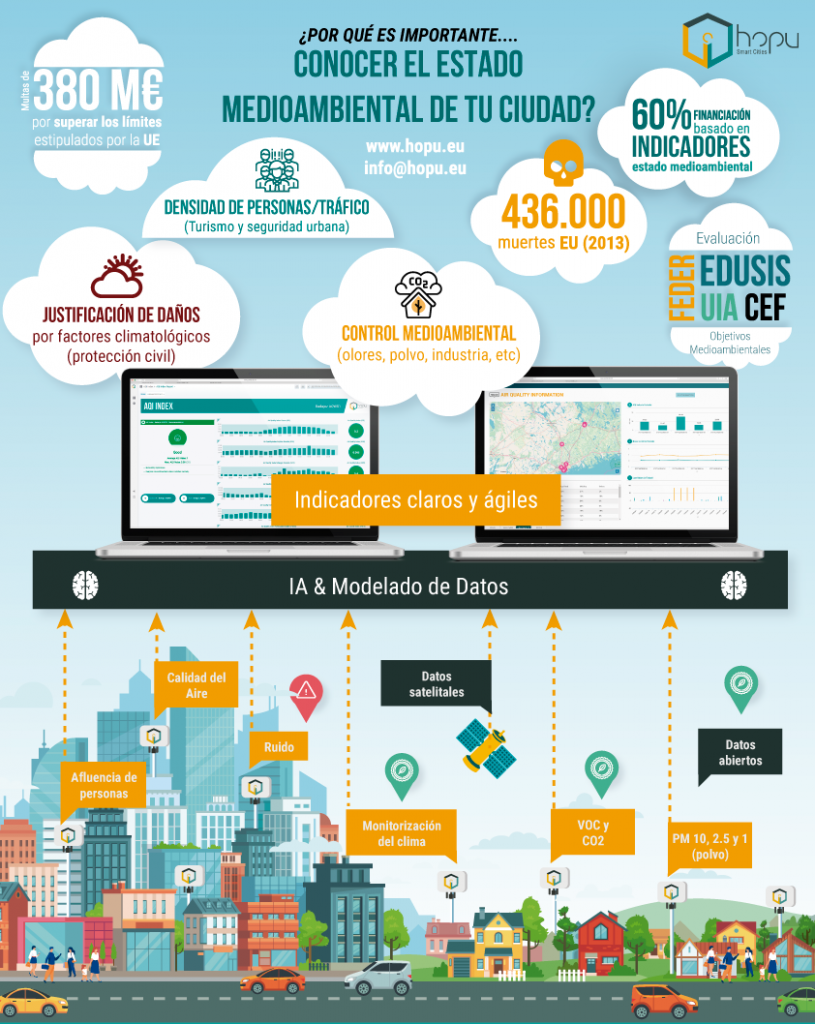
Smart Region Conference “The Future of Intelligent Territories”
As one of the first actions to raise awareness in the Region of Murcia and to disseminate the possibilities within this project, the Autonomous Community of the Region of Murcia, together with the Integra Foundation, has organised a conference called The Future of the Intelligent Territories. These sessions have been promoted by the Directorate of Economy and Finance and by the ERDF funds. During October, November and December, these sessions discussed topics related to mobility, tourism, intelligent beaches (Smart Beach), intelligent lighting, waste management, social welfare and different success stories of Smart solutions.
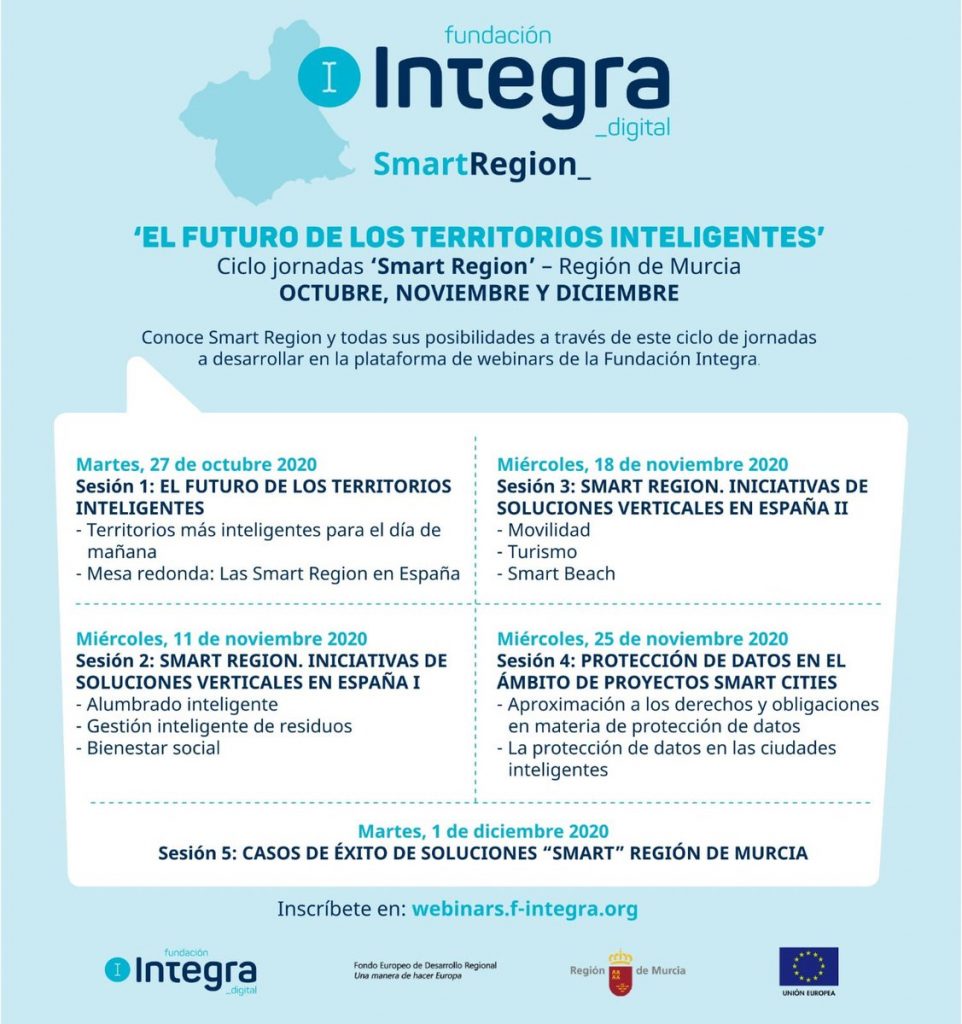
On December 1st, in the session focused on the success stories of Smart solutions, a more realistic view of solutions already on the market was shown. Francisco Abril, General Director of Local Administration of the Autonomous Community of the Region of Murcia, opened this online event by highlighting the role of companies in the Region of Murcia that is dedicated to this sector of the Smart Cities to place Murcia as a technological reference on the map. In the same way, the Director-General urges companies to evangelize citizens and administrations so that they know that not only smart cities are for big cities, but also small municipalities must start their way towards this evolution.
Francisco Abril has highlighted initiatives such as “5K”, a project where eight municipalities under 5,000 inhabitants (Villanueva, Ricote, Ulea, Ojós, Albudeite, Campos del Río and Aledo) are going to become a testbed for smart solutions to promote other municipalities in the region to take this technological step.
During the case study session, different solutions of all kinds were presented by companies such as Neosistec, HOPU, IURBAN, A4RADAR, NEUROMOBILE MARKETING.
From HOPU, we have highlighted our role as a company focused on the monitoring and visualization of environmental data, to contribute to the sustainable urban design of the territories and our aim to develop solutions designed for easy management and understanding of the data by the different administrations.
Antonio Jara, CEO of HOPU, highlights the territorial expansion of this SME, which is already working in more than 35 cities throughout Spain such as Cartagena, Madrid, Algeciras and at a European level, with more than 500 sensors deployed. HOPU’s mission is to help municipalities combat climate change. As a company involved in research, HOPU has a strong presence in European initiatives such as the Green Deal or Next Generation (NEXT CARM in the Region of Murcia).
Based on his experience in the Smart Cities market, the CEO of HOPU highlights the importance of metrics that allow municipalities to transform all data coming from sensors, databases and other sources into clear indicators of the environmental situation of the territory. An example of this use case is the indicator service that HOPU has already deployed in cities such as Cartagena, which makes it possible to identify where a city’s pollution comes from and to differentiate the percentage produced by traffic and by industry.
Finally, from HOPU, the catalogue of sensor services for air quality (gases and particles in suspension), noise, climate and other aspects related to tourism such as noise and flow of people has been exhibited. As a FIWARE company and from the role of Antonio Jara as a Member of the FIWARE Board of Directors, the use of this available technology has also been promoted, which is accessible and affordable for all municipality.
The event was closed by Joaquín Gómez Gómez, General Director of Strategy and Digital Transformation, who highlighted this last session based on innovative solutions in the region. He underlines that in this Smart Region project, they intend to promote first regional companies when implementing Smart City projects. In the early months of 2021, the platform of the project will be tendering, and they are working on other projects to make the Smart City more dynamic, some of which have already been started, such as La Manga 365 as another global solution for various municipalities (San Javier and Cartagena).
As a novelty, the Director-General mentions a new line of financing that will come to light during the first four months of 2021, which will allow the different municipalities in the region to acquire technology and integrate it into the Smart Region platform.
Access to the pitch of Antonio Jara, CEO at HOPU on 5 session about success stories



